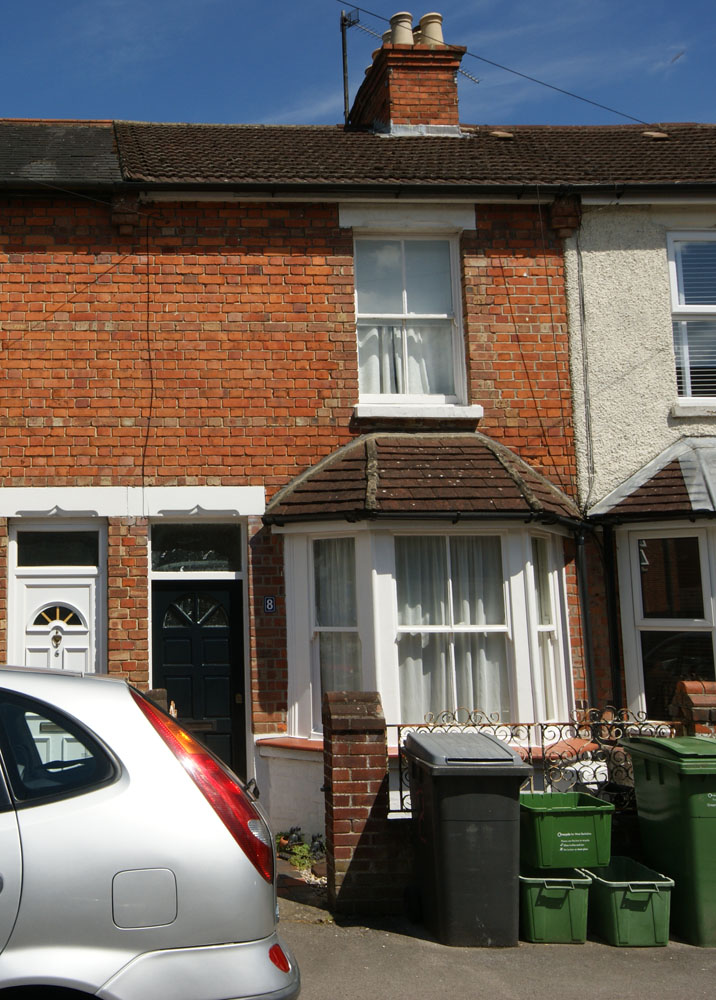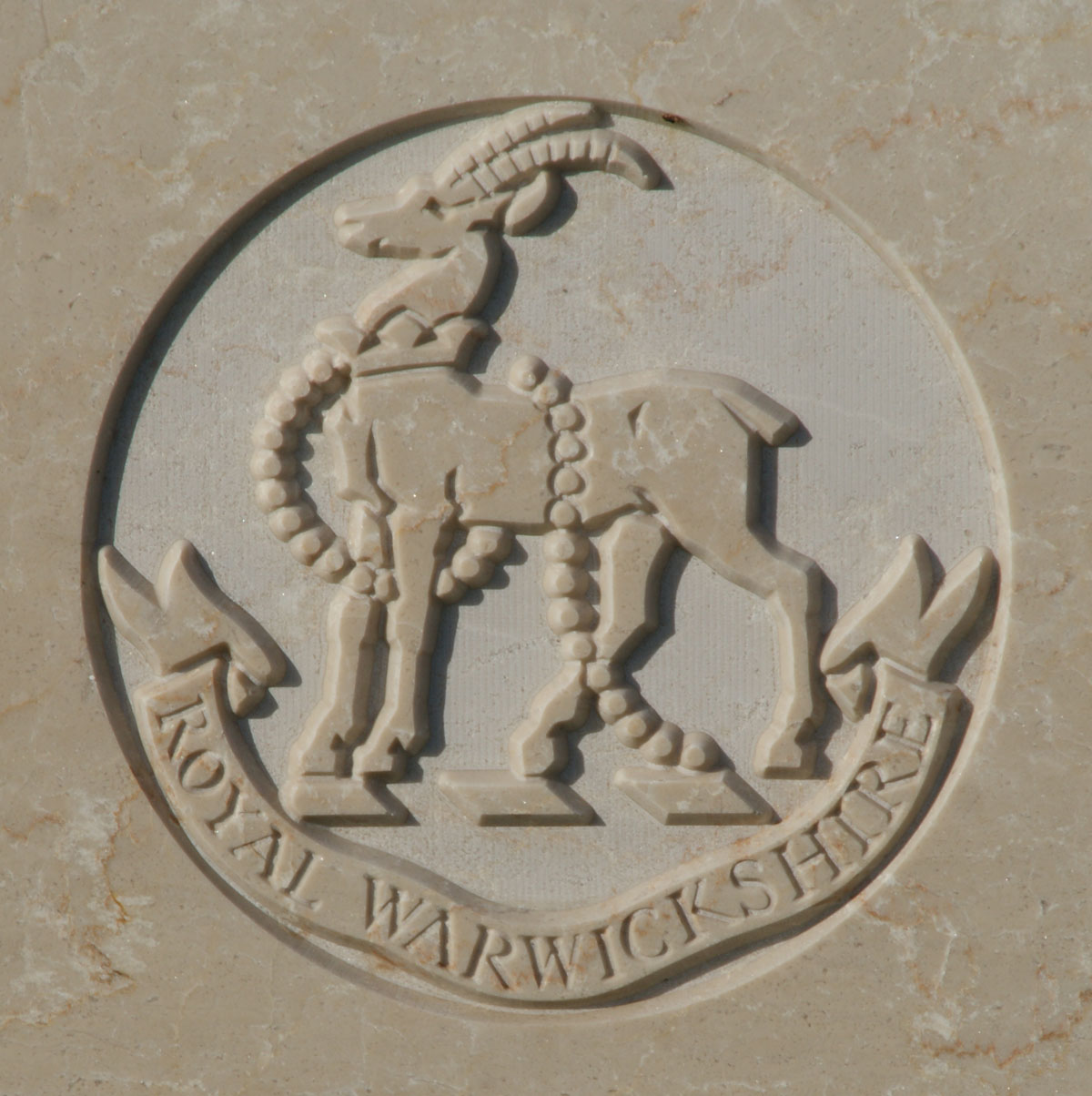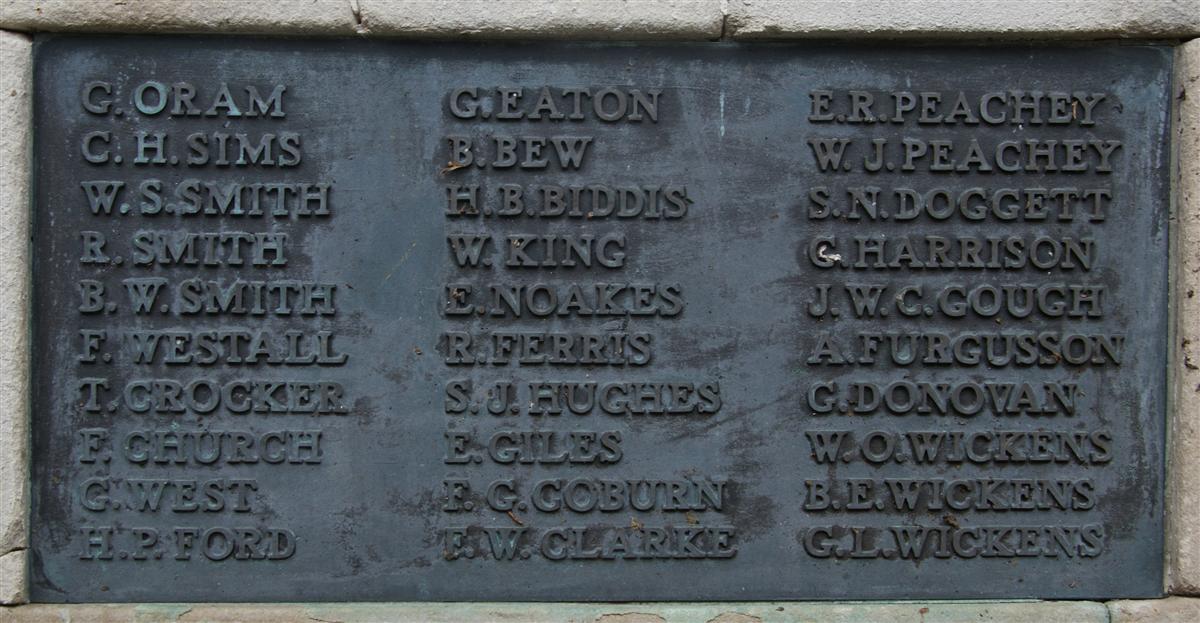Sydney Newman Doggett
Private 409961 Sydney Newman Doggett, 888th Area Employment Company, Labour Corps.
Sydney was born in Newbury on 4 March 1873 the son of Charles Doggett and his wife Jane (née Newman). He was their youngest child born over 21 years into his parents’ marriage. Strangely he was the only one of their many children to be given his mother’s maiden name as a second forename. In total Sydney had a number of siblings, the exact number is not known – several Doggett children died in infancy where they were living in East Grafton, Wiltshire - Emma Ann (1851-51), Mary Ann (1852-53), Kate (1854-54) and Henry Edward (1857-57) - but it is not clear which were the children of Charles and Jane. When they moved to Newbury around 1860 they were the only Doggetts in town making infant deaths readily identifiable. So their known children were James (1855-1905), Charles William (1858-81), Frederick Henry (1861-1909 ), Albert Alfred (1864-96), Mary Jane (1866-70), Tom George (1868-70) and Sydney (1873-1918).
It has to be said that the Doggett’s were not model citizens, the family were not unfamiliar with the local magistrates’ court. Charles worked for Westcombe’s Brewery off Bartholomew Street while Jane took in laundry.
Young Charles was convicted in July 1874 of stealing a lamb’s skin from a bundle outside the Cricketers’ in Bartholomew Street – he made a crucial error in selling the skin to a local fellmonger’s (Fielder’s), presumably not realising that the bundle of skins belonged to Fielder’s, where a worker recognised it. He was sentenced to one month in prison followed by two years in a reform school. It appears that reform school was not totally effective – in October 1880 he was charged with obtaining a truss of hay from a local dealer (Joseph Adey) under false pretences (pretending he was collecting the hay on behalf of his employer). He was convicted and sentenced to four month’s hard labour in Reading Gaol. On admission he was given a medical examination which showed he was suffering from tuberculosis; this was probably no surprise to Charles as he had recently been discharged from the army (37th Regiment of Foot) as ‘unfit for further service’. He became seriously ill a month into his sentence and was treated in the prison infirmary; he had one short respite but soon relapsed and was returned to the infirmary where he died on 18 February 1881.
Other cases included young James stealing carrots for his rabbit and, in the oddest case of all, young Alfred was prosecuted for stealing a shilling eleven years earlier. James was fined 10s 6d but Alfred was let off due to his good character in the intervening years. During those years he was serving in the army (Hampshire Regiment).
In terms of the childrens’ education there was a mixed story, young Frederick was able to get a Cowslade’s Scholarship to the Grammar School (showing he was both intelligent and hard working at school) while young Sydney was far more likely to play truant. Charles senior was fined several times for not ensuring that Sydney attended school, on one occasion a neighbour, Alfred Lipscombe, landlord of the Crown in West Mills, was in the dock alongside him. Lipscombe was able to escape a fine by providing medical evidence explaining his child’s absences, Charles received yet another fine. After his schooling (or lack thereof) Sydney went to work for Alfred Lipscombe, who had a second occupation as a chairmaker – one wonders whether Sydney and young William Lipscombe were mates, and that this led to his subsequent employment.
Such as it was Sydney’s education was first at the West Street infants’ school and then, from 18 March 1881 at St Nicolas’ School (where his attendance problems arose). On 18 May 1885, aged 12, Sydney left school, probably starting work for Alfred Lipscombe soon after.
In 1890 Sydney enlisted into the 3rd Battalion, Royal Berkshire Regiment – the local militia. Membership was not onerous, the main commitment being attendance at the annual training camp. This took place in various places and involved musketry training and military exercises. He was 17 year 1 month old when he signed on and was only 5ft 4½in tall. Although he gave his ‘trade or calling’ as ‘labourer’ at this time he would, in time be calling himself a chairmaker.
Sydney’s parents died in 1894 (Jane) and 1898 (Charles); sadly his mother was not around to attend his marriage in 1894 to Maude Jane Willis. It was not long before their own large family began to arrive; in total they had seven children: James Alfred (born 1895), Helen (1896), Elsie (1899), Eva (1901), William (1904), Sydney Walter (1907) and Henry H (1914). Happily all seven survived into adulthood.
Sydney’s childhood experience of the court system was principally through his father and brothers, though he and a mate (Alfred Dibley) were fined on one occasion for ‘unlawfully bathing’ in the Kennet & Avon Canal near the ‘first bridge’. Their claim that the spot had been a bathing spot for years failed to convince the magistrates who heard from the canal owners (the Great Western Railway) that notices prohibiting bathing were regularly vandalised. The two lads were fined 5s each.
In August 1897 Sydney faced a far more serious charge – that of assaulting his wife:
Berkshire Chronicle, 4 September 1897 – Newbury Borough Bench.
Before Messrs J H Mason and S Hemsted
Husband and Wife – Sydney Doggett, chairmaker, was charged with assaulting his wife, Maude Doggett, on Aug 28. The defendant pleaded not guilty.
The wife stated that she lived at 5 Kennet-court. On Saturday he came home to breakfast, and she was not downstairs, having slept longer than usual. He said he would ‘learn’ here not to get up and get his breakfast, and commenced punching her head about. She tried to retaliate, but he was too strong for her. He said is she raised a hand against him he would batter here brains out. She then ran out of the house. During the past month he had only given her 4s per week to keep house with, and then he abused her for not getting food in the house.
Defendant said he paid the rent, coal was paid for, and grocery and bread. All she had to buy was meat, and he did not get a quarter of the 4s. He expressed his sorrow at the occurrence, and said that he had great provocation in his wife not providing the meals.
Mr Mason: It seems to be the fashion with you kind of gentlemen whenever there is a little home trouble to knock your wives about. We shall fine you £1, including costs, or in default fourteen day’s imprisonment.
Despite this incident the marriage continued, more children arrived and, following Sydney’s death, Maude placed a notice in the paper remembering her ‘beloved husband’.

8 Connaught Road. Home of the Doggett family from 1912 until Maud's death in 1946.. |
Sydney’s service with the Berkshire Militia ended in 1907, shortly before the militias were amalgamated into the new Territorial Force in 1908. There is no evidence that Sydney every served as a Territorial, but he may have remained (notionally) a soldier in the National Reserve – this comprised men who had served their terms as soldiers (regular or militia/territorial) and wished to show their willingness to be called in an emergency. Membership required no effort from the men, their names were held on a register by the local territorial battalion and that was it. When war was declared in August 1914 many National Reservists reported for duty. The authorities assessed each man for fitness and took the healthiest into the army proper; the less fit were used for guard duties in the UK, notably guarding internment and prisoner of war camps.
An alternative was that he was a member of the Special Reserve, another form of part time soldiering, but this involved pay – 7s a week for very little effort (one 12 day training camp a year). He pay would certainly be attractive to Sydney, but he may have had to lie about his age to still be serving in 1914 as men without regular service experience could not serve beyond 40 years of age.

The badge of the Royal Warwickshire Regiment, as used on a CWGC headstone. |
Newbury Weekly News, 6 May 1915 - Local War Notes
Private S Doggett, of the 2nd Royal Warwicks, whose home address is at Connaught-road, Newbury, writes to say that he went through the battle of Neuve-Chapelle without a scratch. The Captain said “Now boys if Von Kluck is ready, so are we.” Immediately the guns burst forth, and shells exploded all around. It must have been hell on earth for the Germans. Not a man in the Company was lost that day, and they went back to billets for the night. The same order of proceedings, but then the Warwicks were ordered to advance. There was a regular storm of shells, and many men fell, but the Warwicks bravely accomplished their object. Pte Doggett, who is 43 years of age, was on April 28th sick at a base hospital.
Between Neuve Chappelle and his death Sydney was transferred to the Labour Corps (No 409961). A transfer like this would typically take place when a man became unfit for front line duties (perhaps as a result of his sickness after Neuve Chappelle) and may well have involved an intermediate transfer to a labour battalion within his regiment/division. The Labour Corps was created in January 1917 and absorbed a variety of labour battalions and companies that had been formed by the Army Service Corps and Royal Engineers as well as infantry Regiments and Divisions.
In 1918 Sydney became ill again and was admitted into a Stationary Hospital at Le Havre. This was probably No 52 Stationary Hospital (the name is a little misleading, ‘stationary’ hospitals did move, but not very often. No 52 was the only such hospital at Le Have in late 1918, though there was at least one General Hospital there as well.
Sydney succumbed to his illness on 28 September 1918, he was 46 years old. His wife place a notice in the local paper:
Newbury Weekly News, 17 October 1918 – Died on Service
DOGGETT – Sept 28, at Stationary Hospital, Havre, France, Sydney Newman Doggett, Roy Warwicks Regt, beloved husband of Maude Doggett, 8 Connaught-road, Newbury, aged 46 years. RIP.
 Sydney's name on Newbury War Memorial (upper right) |
Back home he was remembered on Tablet 11 of the Newbury Town War Memorial, and also on the roll of honour and memorial board in St Nicolas’ Church.
Sydney came from the generation which suffered greatly from the loss of their children during the Great War; Sydney’s son, James Alfred (known as Alfred), was born in 1895 and, barring fitness problems, is very likely to have served (at least five Alfred Doggetts served in the army - all of whom survived the war). Sydney and Maude were, perhaps fortunate that their next three children were girls so their second son (William) was not born until 1904 and was too young to serve.

